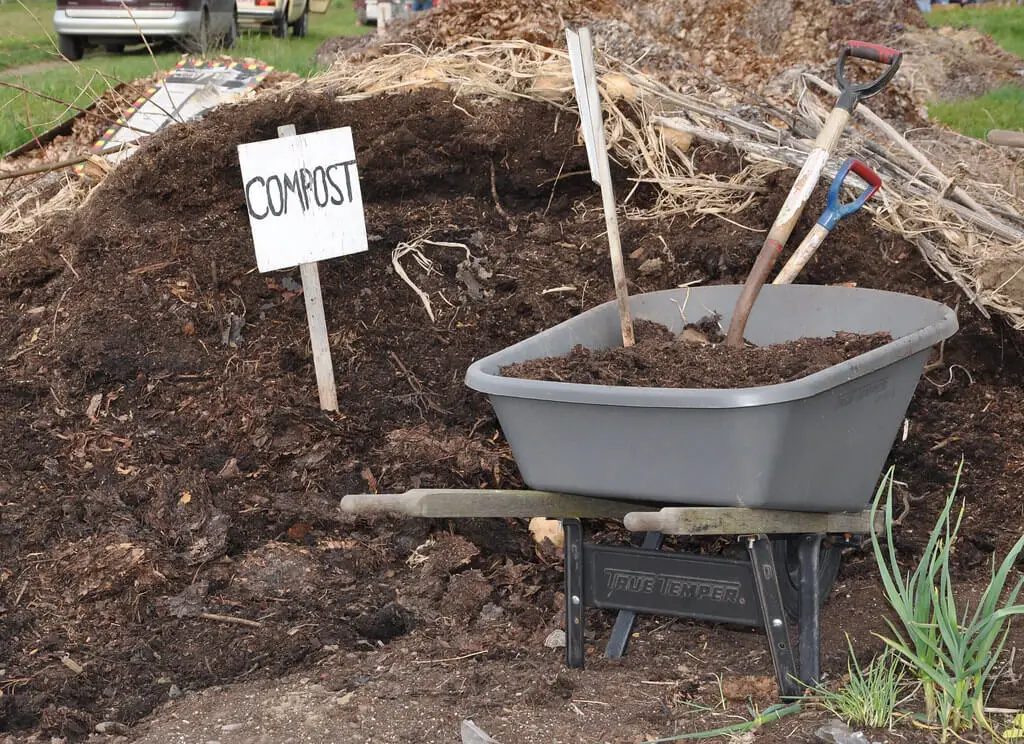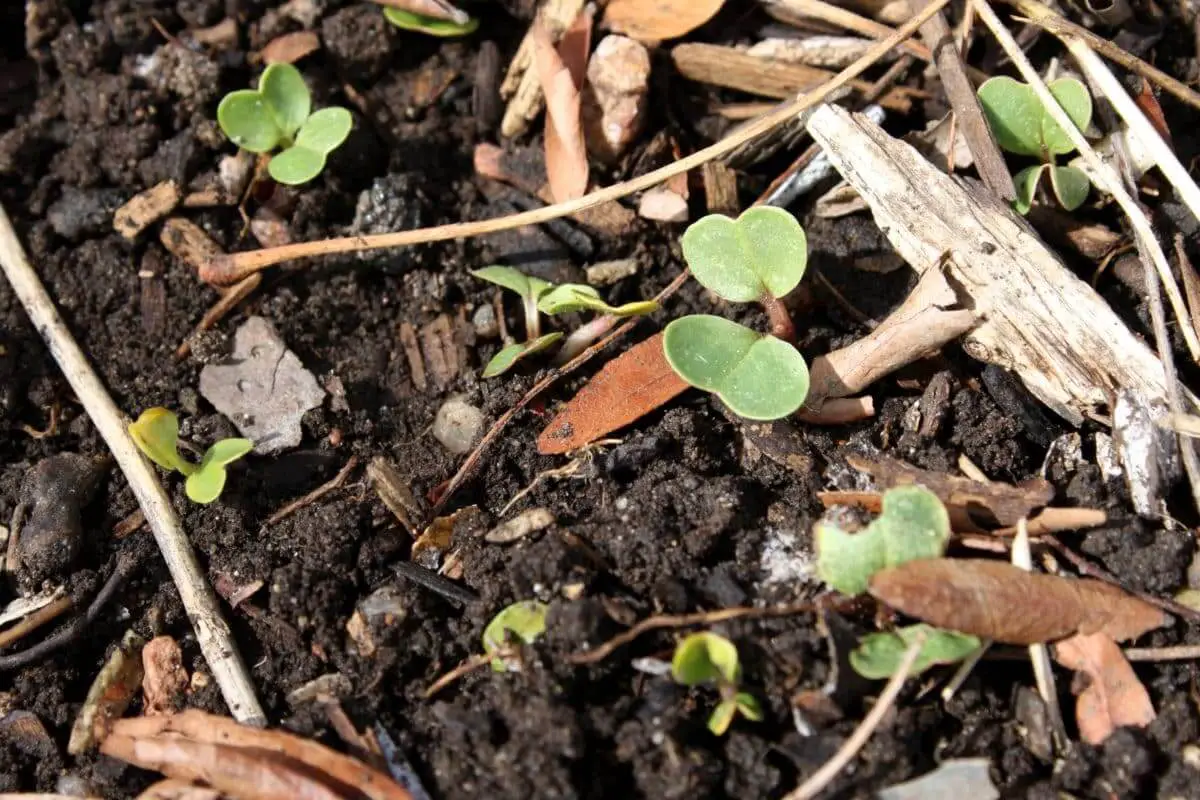Cold composting is the easiest composting method that requires almost no maintenance. However, it’s a slow process and it may take up to a year or two to produce the finished compost.
Table of Contents
What Is The Difference Between Cold Compost And Hot Compost?
If you are new to composting, the terms hot and cold composting may confuse you.
Both composting methods produce humus-rich composts that are good for your garden.
However, they are quite different.
Hot composting is the quickest way to make that rich garden humus. It requires layers of brown and green materials. The temperature is very high in hot composting, up to 160 degrees F. It also requires regular checks, turning your compost and adding moisture.
On the other hand, cold composting is a very low-maintenance process. Once you throw everything in your compost bin, there’s no additional work involved.
However, cold composting takes longer for decomposition to occur, up to a year or more.
| Checklist | Hot compost | Cold compost |
| Decomposition speed | Fast | Very slow |
| Results | It takes 3 to 6 months | It takes 1 to 2 years |
| Composting temperature | 140 degrees to 160 degrees | No specific temperature required |
| Brown-green ratio | 4:1 | No specific ratio required |
| Compost placement | Sunny location | Anywhere |
| Turning compost required | Yes, often | No |
| Moisture check | Yes | No |
When To Choose Cold Composting?
A cold compost will not require any of your attention. You will dump the waste into your compost bin or pile and wait. However, it may take more than a year to see the results.
If you have all the time to wait, then choose cold compost.
How To Cold Compost?
Here are the steps to follow to make your cold compost.
1. Find a suitable location for your compost
The area should be large enough to accommodate your compost over time. It should not be next to windows or doors to avoid foul odors.
2. Add the brown and green materials to the bin
The brown are carbon-rich materials (dry leaves, shredded cardboard, newspapers, and sawdust), and the greens are nitrogen-rich materials (fruit and veggies peels, food scraps, eggshells, and grass clippings).
The carbon materials will provide energy for the microorganisms, while the nitrogen nutrients will provide a conducive environment for the growth and multiplication of microbes.
3. Continue to dump your waste materials over time
4. Wait until the compost has completely decomposed
It will take 6 months to 1 year or even more before your cold compost is ready.
7 Ways to Speed Up Cold Composting
A cold composting method is a slow way of composting. However, if you want the process to happen faster, there are measures to follow.
1. Add composting worms
The composting process relies on microorganisms to break down the organic materials.
Combining the vermicomposting method and cold composting will help increase the number of microorganisms in the compost and accelerate the decomposition process.
2. Ensure that the compost is aerated
The aerobic microbes easily thrive in an aerated compost heap, thereby increasing the decomposition rate.
A compost tumbler serves well in ensuring that there is good aeration of the compost pile.
3. Increase the temperature
High temperature is what makes hot compost decompose quickly.
If you want your cold compost to decompose faster, put it in a sunny place or find other ways to keep the compost hot. The high temperature will also kill weed seeds and pathogens.
4. Chop the compost materials into small pieces
When throwing things into your compost pile, chop the materials into small pieces to increase the composting process.
5. Balance the brown and green materials
Any composting system requires a mix of brown and green materials.
People often don’t consider the brown to green ratio when cold composting. However, if you want to increase the composting process, the balance should be 4:1.
6. Maintain moisture in the compost pile
Ensure that the compost is continuously moist. But not wet.
7. Fill up your composting bin
A larger bin composts faster than a smaller bin. So fill up your bin for a faster-composting process.

When To Choose Cold Composting Over Hot Compost
One significant difference between the two compost methods is that cold composting requires low maintenance and takes time.
On the other hand, hot compost is a high-maintenance process that decomposes quickly.
Therefore, cold compost is recommended only when the time factor is not an issue.
Both composts are good as long as the organic waste decomposes. The soil will still benefit from the nutrients, microorganisms, fungi, and good bacteria in composts.

